AMERICAN UTOPIA (2020)
Singer David Byrne and a group of international musicians perform songs from the hit Broadway musical “American Utopia.”
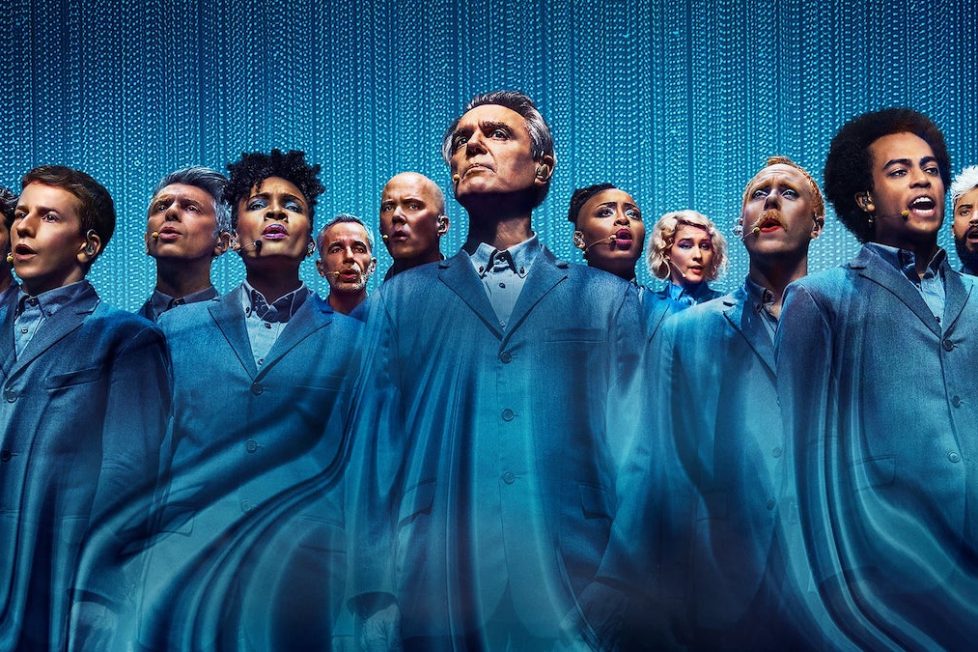
Singer David Byrne and a group of international musicians perform songs from the hit Broadway musical “American Utopia.”


Music and performing does not make sense… music is very physical. Often, the body understands it before the head.—David Byrne.
36 years ago, Jonathan Demme, David Byrne, and the Talking Heads, came together to create the lightning-in-a-bottle Stop Making Sense (1984)—an electrifying concert documentary that received universal acclaim. The film exploded onto the scene as a musical experience unlike any of its contemporaries, with Demme using unique visual angles and cinematic techniques to engagingly capture the vigour of the Heads’ performance.
Stop Making Sense’s show opened with the sight of an anxious Byrne alone on an empty stage, but gradually evolved into an impossibly jubilant communal concert as more and more of his bandmates joined him. It’s through combining this vivacity with Demme’s cinematic expertise that Stop Making Sense exuded a revelatory, divine sense of energy, possessing not just Byrne and the Heads, but also the audiences witnessing all of it. With Byrne’s trademark oversized suit, a minimalist stage, and a big lamp in the middle of it all, the show was a galvanising reminder to the people of 1984 to remove the water holding them down, and yes, stop making sense.
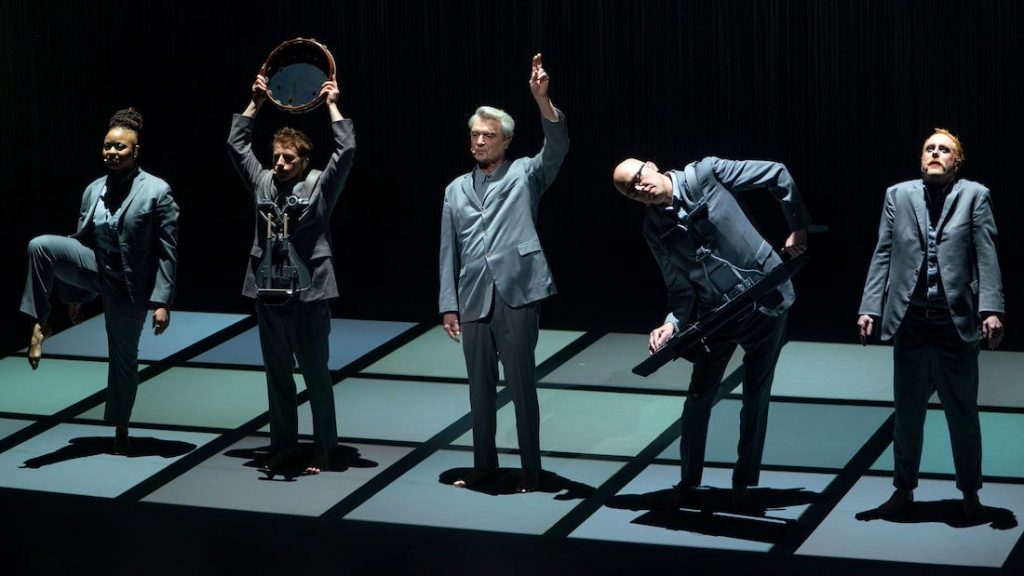
Fast-forward to 2020, where the water’s drowning us all and nothing makes sense anymore. The COVID-19 pandemic is making a deadly resurgence, countries have been thrown into political turmoil, and the isolation we currently live in may continue into the near future. It’s in troubling times like these that David Byrne’s return to the concert film feels only more fitting. And it’s clear that, even after three decades, he hasn’t lost a single ounce of his endearing, showy charm.
David Byrne’s American Utopia is the spiritual successor to Stop Making Sense and a concert film miracle in its own right. With renowned filmmaker-activist Spike Lee in the director’s chair this time, Byrne acknowledges the necessity of not only a talented filmmaker to bring his show to the screen, but also a politically engaged mind who’s just as keen to convey a message about the state of the world as Byrne himself is.
For starters, the show itself is framed so that Byrne’s minimalistic showmanship remains consistent. Whereas Stop Making Sense‘s stage had platforms for the band’s instruments, some tall mics, as well as a few screens, American Utopia strips down its architecture even further. There’s nothing ostentatious about Utopia’s chain-surrounded bare stage, and the only real colour here is all from the show’s vivid lighting.
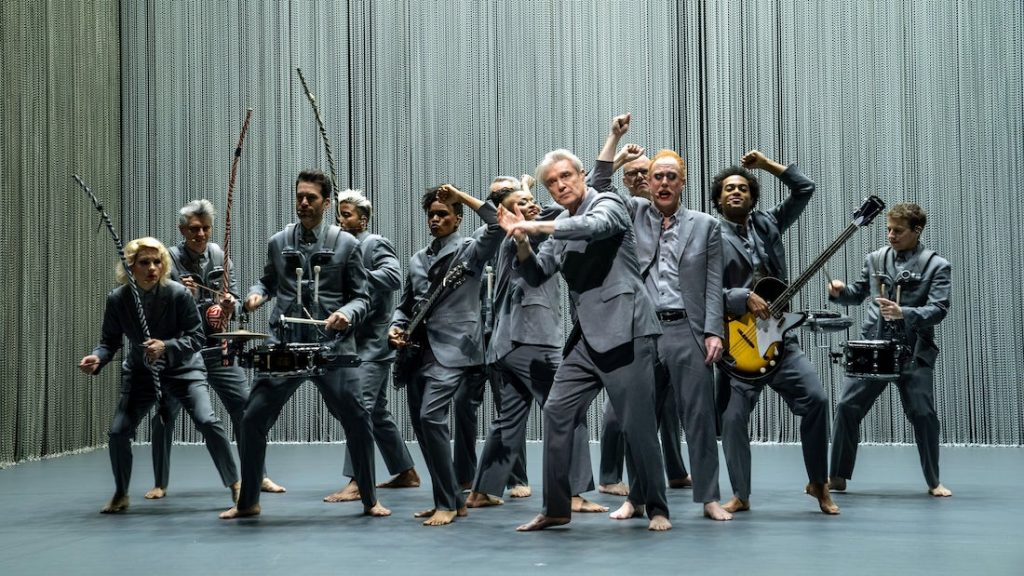
Because of this, the performers are always carrying their instruments with them on harnesses, wandering around the stage barefoot (and wearing grey suits evocative of Byrne’s boxiest one in Stop Making Sense). In many ways, this spatial freedom offers them room to choreograph creatively, allowing their bodies to become moving set-pieces themselves. There isn’t a single combined movement they make that doesn’t seem elaborately telegraphed or patterned in some way.
Further capitalizing on this movement is the incredible visual direction Spike Lee brings to the table. Whereas Stop Making Sense had Blade Runner (1982) cinematographer Jordan Cronenweth capturing the Talking Heads’ magic, Eternal Sunshine of the Spotless Mind (2004) cinematographer Ellen Kuras effortlessly reflects the dynamism of Byrne’s modern ensemble. Rotating overhead shots and close-ups create an engaging cinematic experience much like Demme’s in Stop Making Sense, utilising visual perspectives impossible to see from a front-row seat.
As for the show’s content, Byrne pulls out all the stops in terms of addressing America’s many social issues. Byrne delivers commentary directly to the audience through several interludes in between numbers, tying them into the songs that he finds most fitting. The perils of low voter turnout, for instance, is something that Byrne cleverly reminds the audience of in one monologue, which is also quite prescient in terms of the film’s close proximity to the 2020 election.
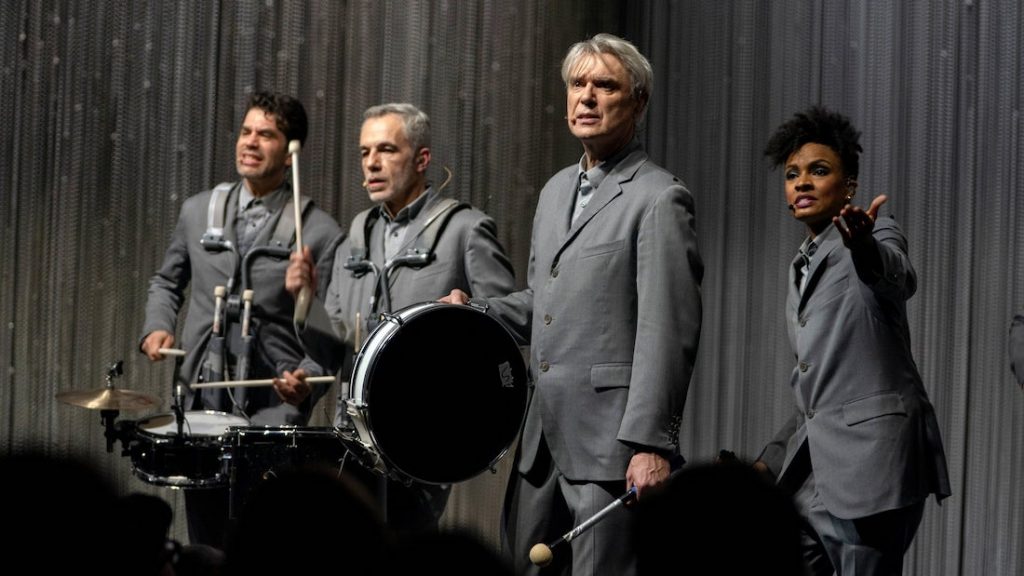
Inclusion and racism are also inevitably at the crux of American Utopia’s themes. For the former, Byrne uses songs like “Home” and “Everybody’s Coming to My House” to cordially and rather innocently invite the audience, regardless of race or ethnicity, to join him in his curious journey. It’s this sort of endearing charm that makes Byrne’s shows incredibly accessible to anyone viewing them, both at home or in Broadway. He’s aware that tackling these weighty social themes is impossible to do alone, and he knows exactly how to form a community both with the ensemble and the audience to make the process easier.
That open-mindedness doesn’t mean a complete lack of seriousness, however, as the racial commentary in American Utopia is as blunt as it gets. Colin Kaepernick’s picture gets projected on stage, legendary author James Baldwin receives a mention, and a show-stopping cover of Janelle Monaé’s “Hell You Talmbout” furiously shouts the names of black men and women who’ve lost their lives to racial injustice. It’s in these moments that Lee’s filmmaking talent and spirit for activism kick into full gear, using his trademark dolly shots and other cinematic techniques to constantly deepen the emotional impact.
Byrne also reaffirms American Utopia’s successor status to Stop Making Sense by directly reincorporating many of the Talking Heads’ classic singles. Even though American Utopia is, in essence, a thematic reverse of Stop Making Sense—-in that it wants to reach people living in a confusing world rather than an overly structured one—it still very much has the same earnest, energetic spirit as its predecessor.
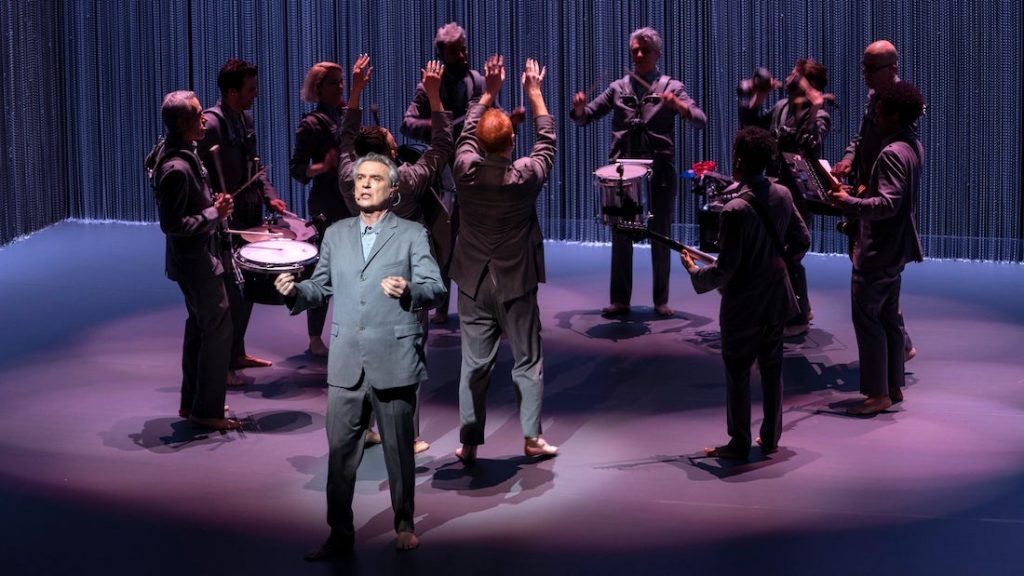
Such is the reason why songs like “Once in a Lifetime” and “Burning Down the House” still resonate even within the context of a wildly different year. Both are songs that express anti-establishment, working-class grievances (‘This is not my beautiful house’ / … ‘This is not my beautiful wife!‘), but they’ve taken on a whole new meaning here in 2020’s numerous economic crises and extended isolation. Combine all that with newer pieces like “Road to Nowhere” that follow the same emotional philosophy, and you have a show that’s ultimately a summation of what defines Byrne’s career both as a musician and a person. It’s a wonderfully definitive display of his curiosity, charm, and everlasting passion for making sense of the world, no matter how much he finds himself changing with the times.
The greatest appeal to David Byrne’s American Utopia is the fact that despite its release in a bleak year, it never stops being hopeful for the future. “Utopia”, after all, literally means “no place”, but it’s also best known for meaning “ideal place”, too. Of course, that doesn’t mean American Utopia is naïve about where America stands now. It knows that we’re on a road to nowhere, and it knows exactly how we got here. But it’s also a reminder that we need to find the road to an ideal place before we start letting the days go by.
USA | 2020 | 105 MINUTES | 1.85:1 | COLOUR | ENGLISH

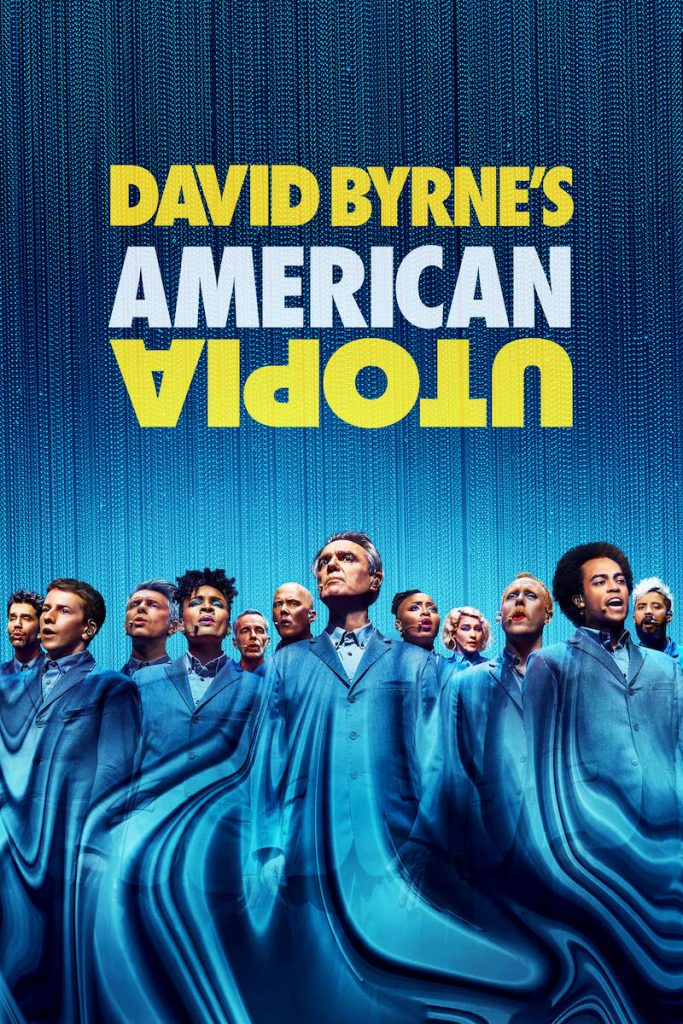
director: Spike Lee.
writer: David Byrne (music from ‘American Utopia’).
starring: David Byrne, Chris Giarmo, Angie Swan, Jacqueline Acevedo, Bobby Wooten III, Mauro Refosco, Tendayi Kuumba, Gustavo Di Dalva, Karl Mansfield, Stephane San Juan, Daniel Freedman & Tim Keiper.
